Navigating The Path to Mental Fitness: Strategies and Benefits
By Julian Lewis • June 13, 2023
Key Takeaways
- Mental fitness encompasses mindfulness, emotional health, and resilience.
- Mental fitness has numerous benefits including improved relationships, cognitive resilience, and emotional well-being.
- Strategies for mental fitness include meditation, physical activity, adequate sleep, and a balanced diet.
- A lifestyle approach and digital tools can help maintain mental fitness.
- The journey towards mental fitness is ongoing and can be started today.

What if you could unlock a treasure trove of mental vigor, resilience, and cognitive health by understanding and applying the principles of mental fitness? Imagine navigating through life's ups and downs with unwavering psychological well-being, fueled by a strong foundation of mental strength and emotional health.
In this comprehensive guide, we'll delve into the intricate connection between mental fitness and mental health. We'll explore how physical fitness, mindfulness, and cognitive function play crucial roles in building an active lifestyle that contributes to your overall well-being. For practical daily habits to track for improved mental wellness, you can check out our post on 20 Daily Habits to Track for Improved Mental Wellness.
You'll learn about the importance of fostering positive emotions, recognizing cognitive errors, and developing a robust practice of meditation and gratitude. Moreover, we'll look at how building self-awareness and improving cognitive skills can bolster your resilience, empowering you to bounce back from challenges and maintain emotional balance.
Join us as we delve deeper into this fascinating journey towards improving our psychological fitness and well-being, and let's uncover the secrets to unlocking our mental wellness and cognitive resilience. You might just discover the key to enhancing your mental processes, managing stress, coping with anxiety, and combatting depression.
Stay tuned as we uncover the pillars of mental and physical fitness that lead to a state of overall well-being, and let's begin our path towards a mindful, resilient, and emotionally healthy life.
Learn more about finding life balance in our related blog post.
Join our Newsletter
Transform your career with our personal growth insights. Get one valuable tip right in your inbox every Saturday morning.
Understanding Mental Fitness
What is Mental Fitness?
In the same way that physical fitness relates to the robustness and vitality of our bodies, mental fitness refers to the health and resilience of our minds. This term encompasses our cognitive health, psychological well-being, and overall mental strength. It's not just about warding off mental health issues like stress, anxiety, or depression; it's also about cultivating a state of mind that promotes happiness, joy, optimism, gratitude, and contentment.
Mental fitness signifies the exercise of the brain, much like how physical fitness involves exercising the body. It involves mental training aimed at improving cognitive skills, such as memory, attention, and problem-solving, alongside bolstering emotional well-being and psychological fitness.
Comparing Physical and Mental Fitness
While physical fitness might be the first thing that comes to mind when you think of an active lifestyle, mental fitness is equally significant. Much like maintaining an active body, promoting an active mind through consistent mental exercises can significantly improve our mental wellness and cognitive resilience.
Physical fitness typically involves activities that improve our strength, endurance, and flexibility, and it's often visible in our physical health and body fitness. Mental fitness, on the other hand, is more subtle but no less impactful. It relates to our mental processes and cognitive functioning, including our cognitive abilities and cognitive performance.
The Importance of a Balanced State: Being Physically and Mentally Fit
Striving for a state of well-being means achieving balance. This involves fostering both physical and mental fitness. An active lifestyle that harmonizes physical health and mental well-being can significantly improve our overall quality of life.
The beauty of this balanced state is that physical and mental fitness often feed into each other. Regular physical exercise can enhance cognitive function, reduce stress, anxiety, and depression symptoms, thereby promoting mental health. Meanwhile, mental fitness exercises like mindfulness, meditation, and positive thinking can motivate us to maintain physical fitness, creating a virtuous cycle of wellness.
In essence, the path to well-being is a holistic journey that requires attention to both physical fitness and mental fitness. When we place equal importance on our body and mind, we're more likely to achieve a truly balanced state of health and happiness.
Benefits of Being Mentally Fit
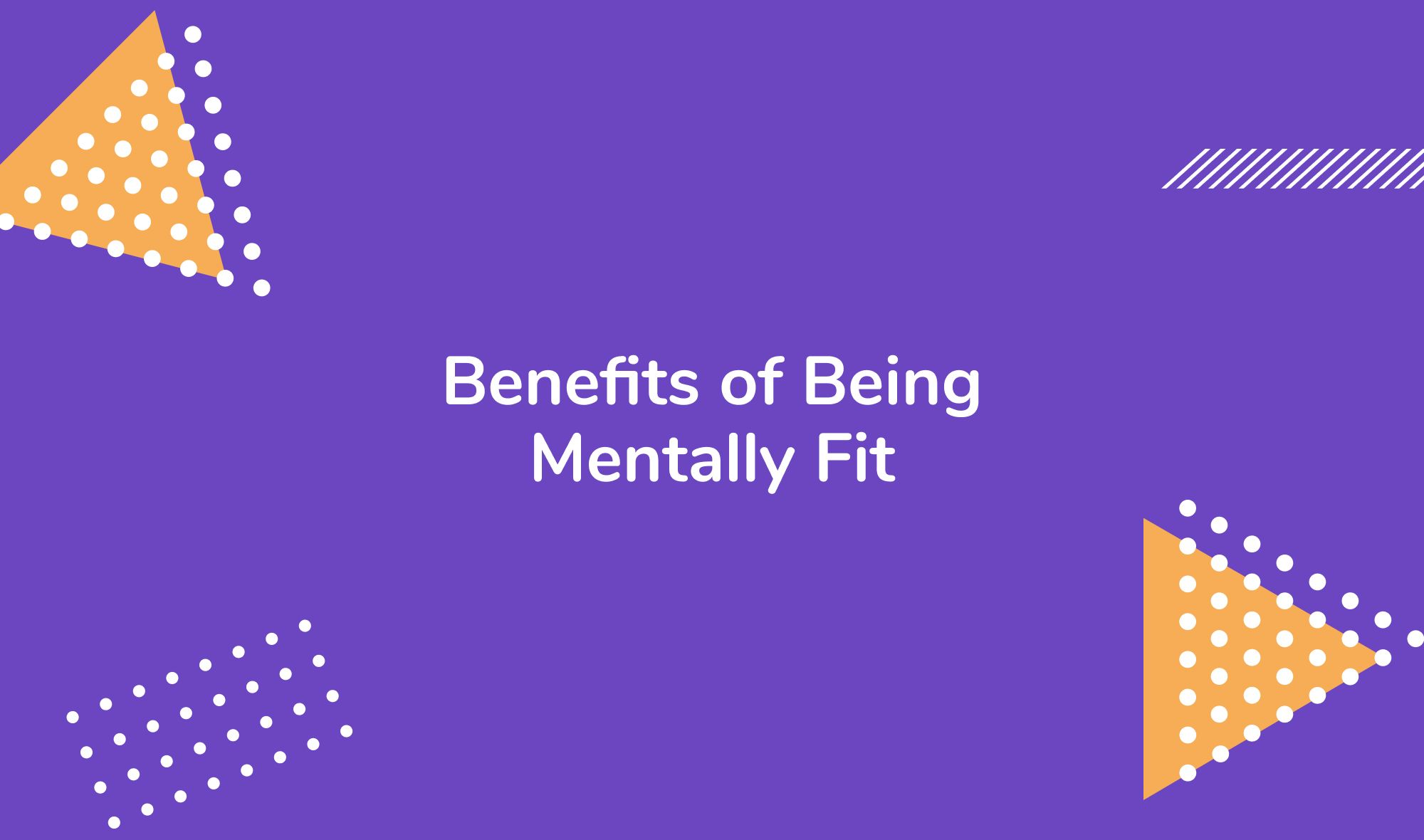
Being mentally fit does not merely relate to the absence of mental health disorders; it involves a broader range of advantages, from cognitive resilience to improved relationships and enhanced life satisfaction. Below we delve into these numerous benefits, providing real-life examples and references to scientific research to back up these claims.
Enhanced Emotional Well-being
Firstly, being mentally fit fosters emotional well-being, providing us with the tools to navigate life's ups and downs more effectively. This emotional balance allows us to experience positive emotions, such as happiness, joy, and gratitude, even in the face of adversity. It can also decrease the risk of psychological stress, emotional anxiety, and depression.
Research published by the National Institute of Mental Health has shown that those who are mentally fit have a higher likelihood of maintaining emotional health during challenging times. They are better equipped to cope with stress and anxiety and can bounce back faster from traumatic experiences.
Join our Newsletter
Transform your career with our personal growth insights. Get one valuable tip right in your inbox every Saturday morning.
Improved Cognitive Resilience
Mental fitness is linked with better cognitive function, including improved thinking abilities, memory, and concentration. These mental processes and cognitive skills can be likened to muscles – the more we use and challenge them, the stronger they become. By regularly engaging in mental exercises, we can boost our cognitive performance and resilience, helping us remain sharp and focused as we age.
In her book "The Mindful Path to Self-Compassion", psychologist Dr. Kristin Neff discusses the importance of cognitive health and how mindfulness practices can increase cognitive resilience and mitigate cognitive errors or distortions.
Better Relationships and Increased Resilience
Mentally fit individuals tend to have healthier and more satisfying relationships. By fostering self-awareness and emotional health, mental fitness helps us understand our emotions and those of others, facilitating better interpersonal communication and empathy.
Moreover, mental fitness increases resilience, equipping us with the mental toughness and coping skills needed to adapt to change, overcome challenges, and recover from life's setbacks. These elements are crucial in maintaining strong, healthy relationships and promoting personal resilience.
One study from our blog at Zella Life underscores the significance of empathy and resilience in fostering deep, meaningful connections with others.
In conclusion, the benefits of being mentally fit extend far beyond merely protecting against mental health disorders. It's an investment in our overall quality of life, from our emotional balance and cognitive abilities to our interpersonal relationships and personal resilience. By prioritizing mental fitness, we can enjoy a more fulfilling, balanced, and resilient life.
Components of Mental Fitness
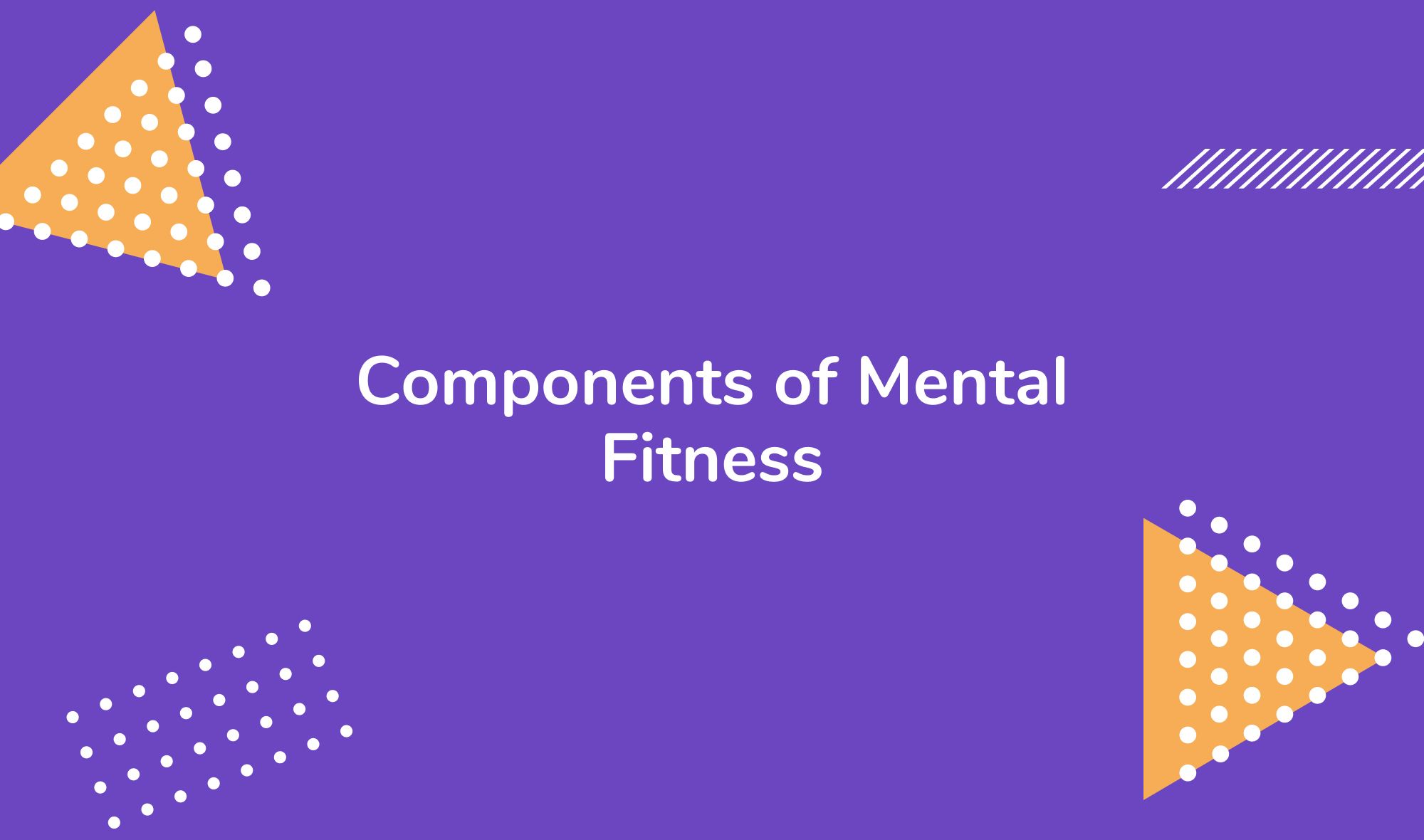
Achieving and maintaining mental fitness entails understanding its key components, which encompass mindfulness, cognitive function, emotional health, resilience, and more. Each of these elements plays a unique role in achieving overall mental fitness, and in this section, we'll delve into each one in detail.
Mindfulness
Mindfulness refers to the practice of staying present and fully engaged with whatever we're doing at the moment — free from distraction or judgment, and aware of our thoughts and feelings without getting caught up in them. Studies show that practicing mindfulness can reduce stress and improve cognitive performance.
Incorporating mindfulness into your daily routine can be as simple as dedicating a few minutes each day to focus on your breathing, engaging in mindfulness meditation, or simply paying more attention to your daily activities.
A good resource that can help you incorporate mindfulness into your routine is our blog post on how to cultivate self-awareness, which is a fundamental aspect of mindfulness.
Cognitive Function
Cognitive function involves all aspects of perception, thinking, reasoning, and remembering. Enhancing your cognitive function can be achieved through mental exercises, continuous learning, maintaining an active lifestyle, and ensuring a healthy diet.
Activities that challenge your brain, such as puzzles, reading, writing, or learning a new skill, can significantly improve cognitive function. Our post on creative solutions provides insight into various activities that can stimulate your cognitive abilities.
Emotional Health
Emotional health refers to our ability to understand and accept our feelings, rather than deny them. It involves not only acknowledging our emotions but also managing them effectively. By nurturing our emotional health, we can better cope with life's challenges, reduce stress, foster positive relationships, and even enhance our physical health.
Cultivating emotional health involves practices such as self-care, developing a positive mindset, and seeking support when needed. Reading our article on identifying emotional triggers and responding in a healthy way can be a helpful starting point in enhancing emotional health.
Resilience
Resilience is the ability to bounce back from adversity. It's a crucial aspect of mental fitness that allows us to cope with stress, face challenges, recover from setbacks, and even grow from these experiences.
Resilience can be fostered by maintaining a positive outlook, practicing emotional awareness, seeking support when needed, and taking care of one's physical health. Our piece on navigating the unknown: strategies for coping with existential dread offers some practical strategies to build resilience.
In conclusion, mental fitness is not a single attribute but a complex interplay of multiple components. By understanding and actively working on these aspects — mindfulness, cognitive function, emotional health, and resilience — we can significantly enhance our mental fitness and overall well-being.
Strategies to Achieve Mental Fitness
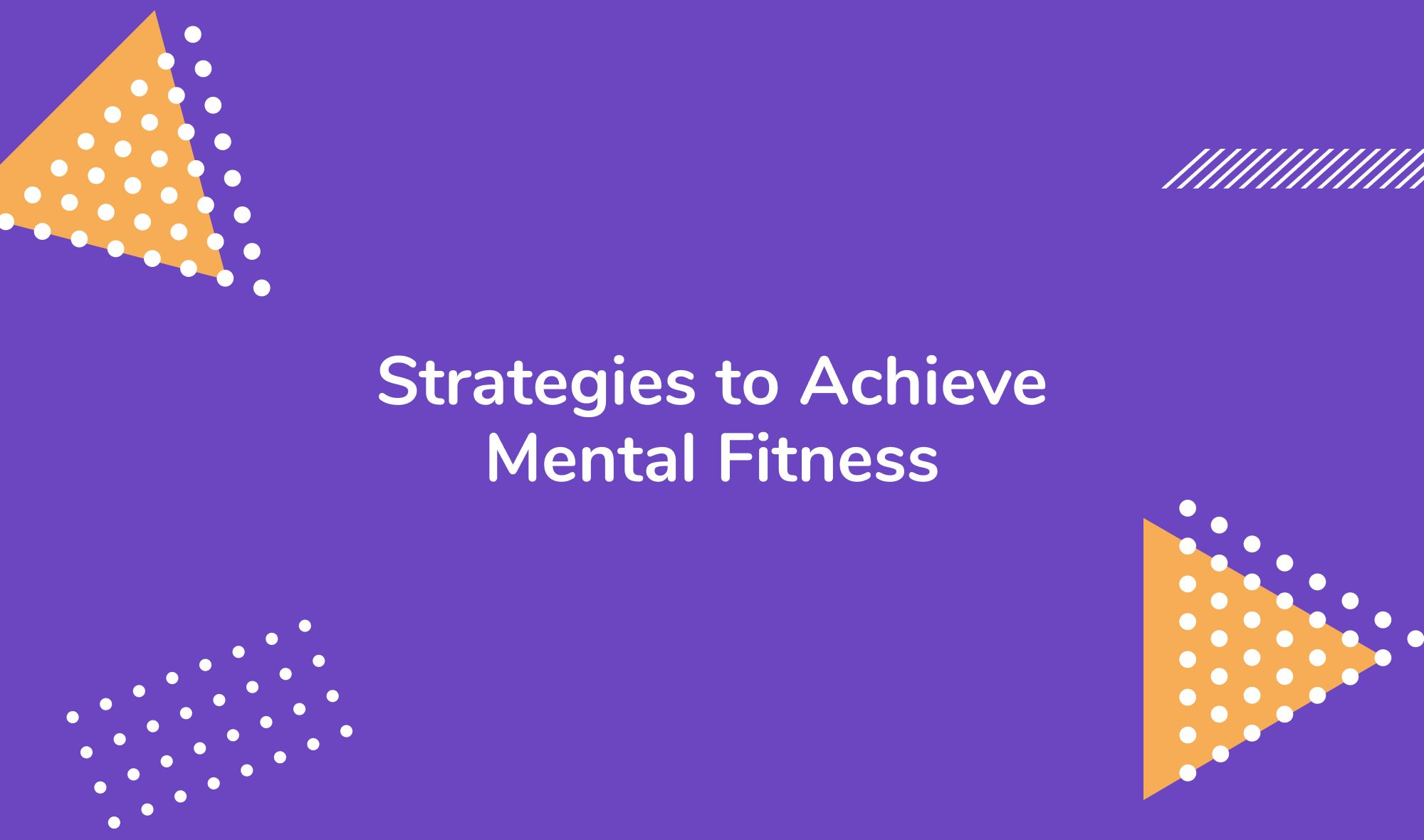
To achieve optimal mental fitness, it's crucial to develop and maintain a set of strategies that promote psychological well-being, boost cognitive resilience, and foster emotional health. This section will introduce a range of strategies, each contributing uniquely to mental fitness.
Practice Mindfulness Regularly
One of the most effective ways to achieve mental fitness is through regular mindfulness practice. Mindfulness can reduce stress, improve focus, and increase emotional well-being. It involves focusing your attention on the present moment and accepting it without judgment.
You can begin by setting aside 5-10 minutes each day to focus on your breath, sensations, or surroundings. Over time, try to extend this practice to everyday activities. The app Headspace offers guided mindfulness exercises to help you cultivate this practice. For more about mindfulness, you can refer to our post on why it's important to start the morning with intentionality.
Foster Positive Emotions
Fostering positive emotions can improve your mental fitness by reducing stress, enhancing resilience, and promoting a sense of well-being. Strategies to foster positive emotions include practicing gratitude, maintaining a positive outlook, and cultivating an optimistic mindset.
A daily gratitude practice, for instance, can shift your focus from what's wrong in your life to what's right. This could be as simple as jotting down a few things you're grateful for each day. For more ideas, check out our blog post on transforming comparison into motivation.
Improve Cognitive Function
Keeping your brain active and engaged is essential for maintaining cognitive health. Activities that challenge your brain such as puzzles, reading, writing, or learning a new skill can significantly enhance cognitive function.
One great way to challenge your brain is to embark on continuous learning. This could be through reading new books, taking up a new hobby, or enrolling in online courses. Visit our post on unlocking professional success with soft skills training for inspiration on continuous learning.
Join our Newsletter
Transform your career with our personal growth insights. Get one valuable tip right in your inbox every Saturday morning.
Build Resilience
Resilience, or the ability to bounce back from adversity, is a vital aspect of mental fitness. This can be fostered by maintaining a positive outlook, practicing emotional awareness, and taking care of your physical health.
To build resilience, it's important to view challenges as opportunities for growth, nurture a positive self-image, and maintain strong connections with your support system. Our post on understanding how to calm anxiety at work discusses some strategies for building resilience.
In summary, achieving mental fitness requires a combination of practices that nurture our minds, bodies, and emotions. By adopting these strategies, we can work towards a state of mental strength, resilience, and overall well-being.
Maintaining Mental Fitness: A Lifestyle Approach
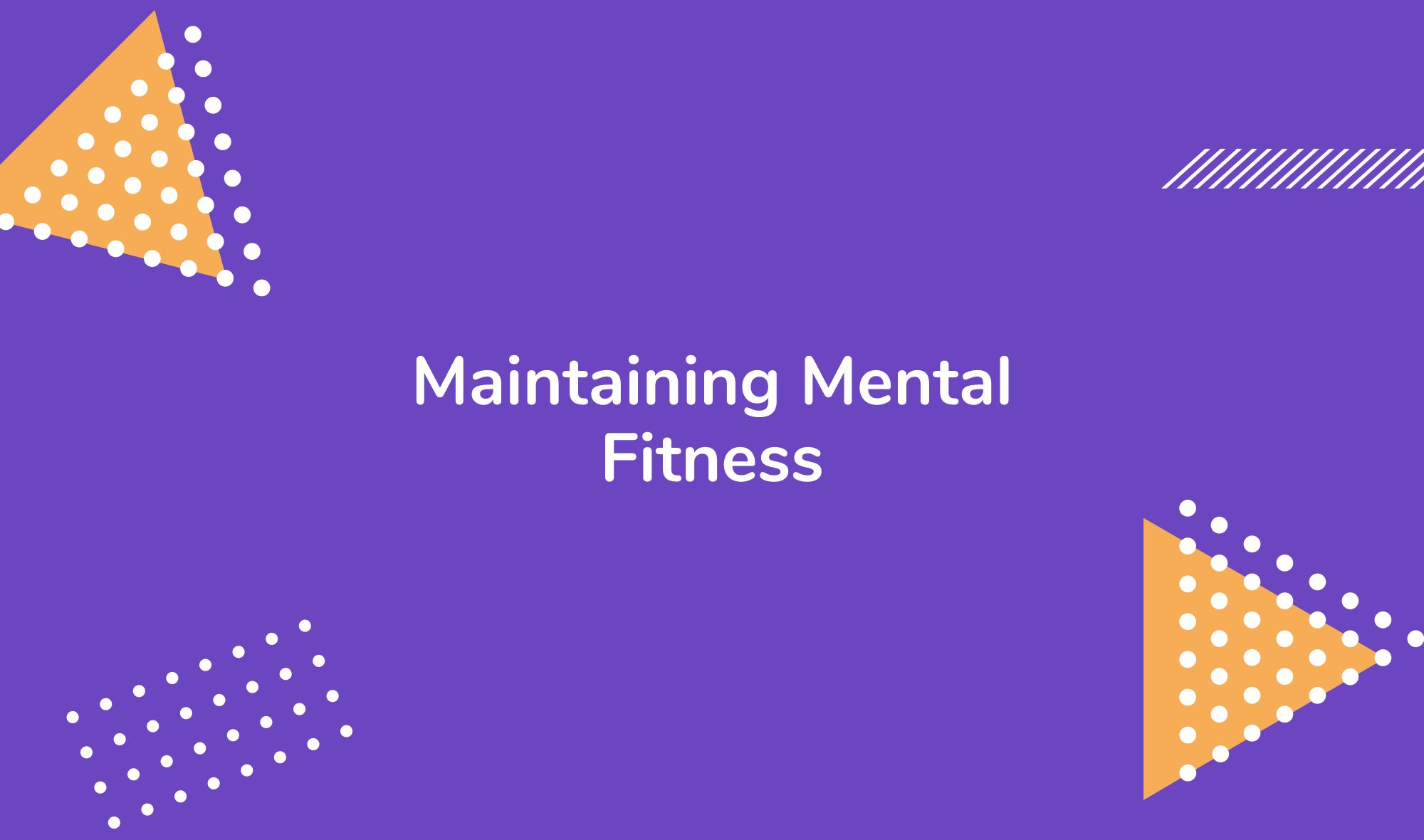
Maintaining mental fitness goes beyond implementing a set of strategies. It's about embracing a balanced lifestyle that prioritizes psychological well-being, resilience, and emotional health. This section outlines lifestyle adjustments and habits that can help in supporting and maintaining mental fitness.
Balanced Nutrition
Good nutrition is crucial for both physical and mental health. A balanced diet can improve brain function, mood, and energy levels. It's advisable to consume a diet rich in fruits, vegetables, whole grains, lean protein, and healthy fats. Limit intake of processed foods, sugary drinks, and high-fat foods.
Additionally, certain nutrients such as Omega-3 fatty acids, B vitamins, and antioxidants are particularly beneficial for brain health.
Regular Sleep
Sleep plays a crucial role in maintaining mental fitness. It enables the brain to process and consolidate memories, remove toxins, and replenish energy. Strive for 7-9 hours of quality sleep per night. Maintain a regular sleep schedule, create a relaxing bedtime routine, and ensure your sleep environment is quiet, dark, and cool.
Social Connections
Strong social connections can significantly contribute to mental fitness. They offer emotional support, reduce feelings of loneliness, and provide opportunities for positive interactions. Invest time in building and maintaining relationships with family, friends, and community members. Volunteering or participating in group activities can also foster social connections.
Stress Management
Effective stress management is crucial for mental fitness. Chronic stress can impair cognitive function, negatively affect mood, and lead to mental health issues such as anxiety and depression. Incorporate stress management techniques such as mindfulness, deep breathing, and progressive muscle relaxation into your daily routine.
In conclusion, maintaining mental fitness is a holistic process that encompasses balanced nutrition, regular sleep, strong social connections, and effective stress management. By adopting a lifestyle approach, we can create a sustainable foundation for mental fitness and overall well-being.
For those interested in developing mindful leadership skills, you can explore the benefits and techniques of mindful leadership coaching in our blog post on Mindful Leadership Coaching: How to Become a Mindful Leader.
The Role of Technology and Digital Tools in Mental Fitness
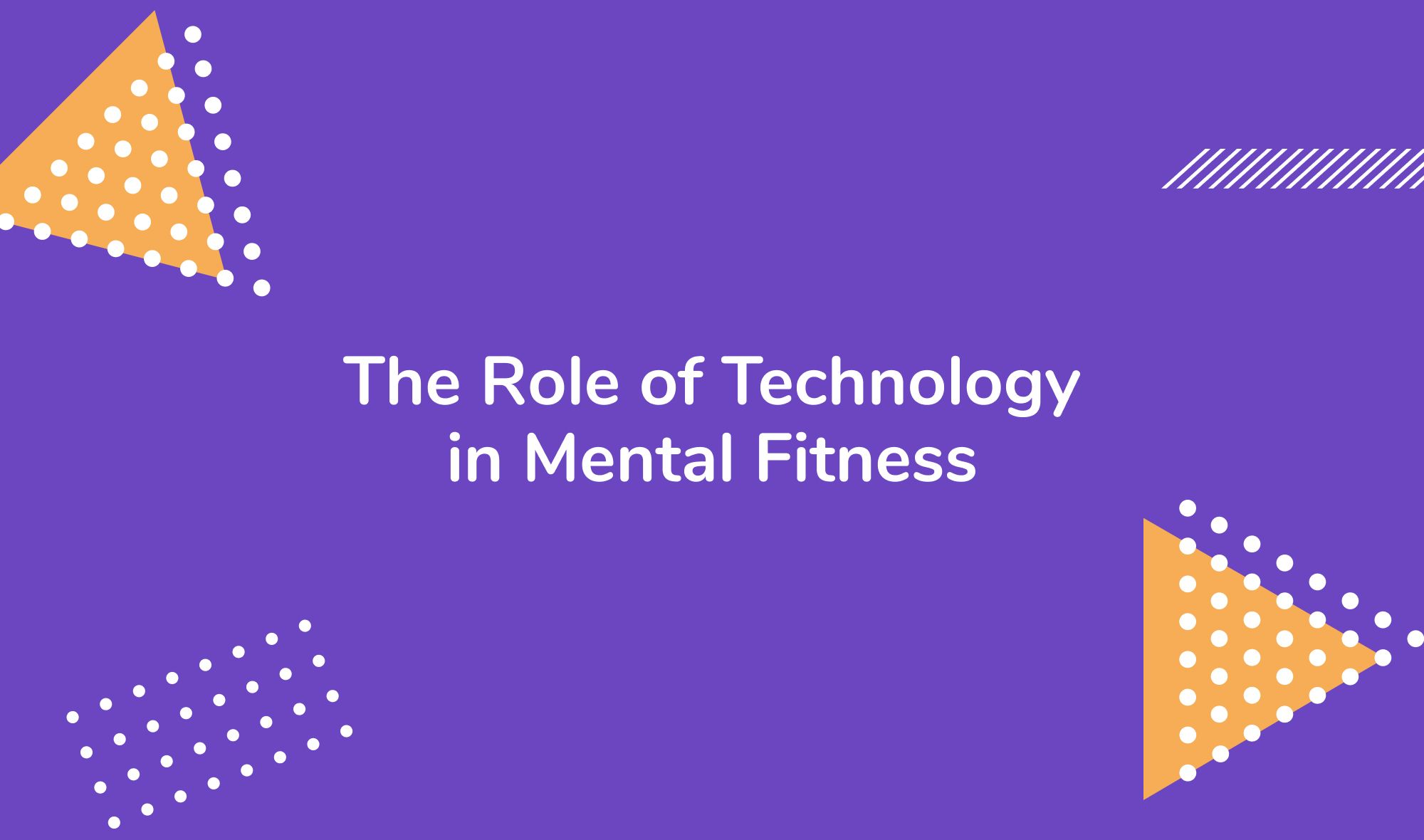
In our interconnected, digital world, technology plays a central role in bolstering and promoting mental fitness. From practical apps to comprehensive platforms and digital tools, modern technology provides a myriad of resources for managing mental health and boosting mental well-being.
Mental Fitness Apps
Mental fitness apps offer an accessible way to engage with strategies that can significantly improve psychological well-being, mental strength, and cognitive resilience. These apps provide tools such as mindfulness practices, stress management techniques, and cognitive training that can be conveniently incorporated into a busy lifestyle.
For instance, Headspace is a leading app that provides users with guided meditations, mindfulness exercises, and sleep resources. It aims to assist users in managing stress, anxiety, and improving sleep patterns. On a similar note, the Calm app offers a myriad of mindfulness and relaxation techniques designed to help individuals manage stress and enjoy better sleep.
Online Learning Platforms
Online learning platforms present a wealth of opportunities to learn about mental fitness at your own pace. For example, platforms like Coursera and edX offer extensive courses on well-being and mindfulness. Additionally, Coursera's stress management courses provide a structured approach to understanding and managing stress effectively.
Digital Therapy Platforms
Digital therapy platforms such as BetterHelp, Talkspace, and 7 Cups offer professional mental health support in the form of video, voice, or text-based therapy sessions. These platforms can be particularly beneficial for those who may feel uncomfortable with in-person therapy sessions or for those who live in areas with limited mental health resources.
In conclusion, technology offers a wide variety of tools that can support mental fitness. From apps guiding you through mindfulness exercises, to digital therapy platforms offering professional mental health support, the digital world has certainly paved new avenues for achieving and maintaining mental fitness. However, it's essential to ensure that any digital tool used is reputable, secure, and respects your privacy.
Conclusion
As we conclude this comprehensive exploration of mental fitness, it is crucial to reiterate its central role in our lives. Just like physical fitness, mental fitness is an essential aspect of overall health and well-being. It underpins our emotional well-being, cognitive resilience, relationship-building capabilities, and our ability to cope with life's inevitable ups and downs.
Investing time and energy in maintaining and improving mental fitness can yield significant dividends. From improving your concentration and decision-making skills to fostering resilience and emotional stability, the benefits are extensive and profound.
In this digital era, numerous tools and platforms can guide and support us in our quest for improved mental fitness. Whether it is through mindfulness apps, online courses, or digital therapy platforms, the resources available to us are vast and readily accessible.
For a deeper understanding of psychological development, explore Erik Erikson's stages of psychosocial development explained in our blog post.
At the end of the day, achieving and maintaining mental fitness is a journey, not a destination. It's a process of growth, understanding, and continuous self-improvement. Embracing the components of mental fitness—mindfulness, cognitive function, emotional health, resilience—and implementing strategies to bolster these components will set you on a path towards enhanced mental strength.
So, why not embark on this journey? Why not take that first step towards becoming mentally fit? After all, your mind, like your body, deserves the utmost care and attention. Embrace mental fitness today, for a healthier, happier tomorrow.
If you're interested in more leadership wisdom, don't miss our in-depth article on 30 of the best leadership coaching quotes and their hidden messages.
Read more about: Well-being, Life Coaching, Professional Development
About Julian Lewis
Julian Lewis is a driven and accomplished professional with a passion for driving positive change in the business world. He is the co-founder and COO at Zella Life.
His own experience as a professional of color in a Fortune 500 company led him to discover the limitations for advancement that many professionals like himself face. Determined to reach his full potential, Julian became an established business coach and entrepreneur, committed to supporting others in their pursuit of personal and professional growth.
Today, Julian is a recognized corporate trainer, coach, and leader, known for his ability to leverage real-life experiences and evidence-based methodologies to affect positive change within individuals and organizations. As the leader of Zella Life's coaching division, he is dedicated to empowering individuals and businesses to achieve their full potential.